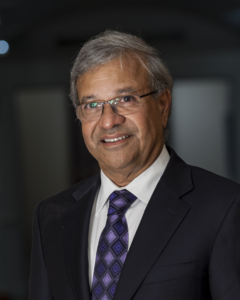Dipak Roy on education, defence and the future of technology
Posted on Thursday, May 30th, 2024
Dipak Roy knows a thing or two about the future of technology.
With engineering degrees from Kolkata’s Jadavpur University and Ottawa’s Carleton University, two tech patents, appearances in more than 30 technical publications and membership in AOC Global’s Electronic Warfare Technology Hall of Fame — the first Canadian to ever receive this prestigious recognition — Roy has made a name for himself as an authority in the electronic defence sector.
A long-time entrepreneur, Roy started his first company, ICS, in 1978, initially operating out of a warehouse basement. With a focus on sonar, radar and communications technologies for the defence market, his company grew to serve in more than 20 countries and win multimillion dollar contracts, including a $50 million sonar upgrade for the United States Navy.
All this high-profile work has given Roy a unique insight into the relationship between society, security and technology, as well as how the status quo can be impacted by world events. He believes education and research and development (R&D) are of paramount importance for the future of both his industry and Canada as a whole.
“Everything is becoming very knowledge-based, and for Canada to have any meaningful position in the world, we have to support education and R&D…,” said Roy. “[Canada] cannot be a major manufacturing hub because of high costs, but we can be a major intellectual property hub, where the whole world will come to us because we have the knowledge and the skills to make things happen.”
As part of his efforts to improve the future of electronic defence, Roy has been heavily involved with Carleton University, creating a lab for engineering students, supporting various R&D projects and employing graduates. A number of Algonquin College students are also employed at D-TA Systems, where Roy serves as founder and executive chairman.
“We have quite a few Algonquin students in our company, and they are a major producer. We are very, very impressed with their skills and adaptability,” he said, adding that he hoped to grow his involvement with the College “in a big way,” with the potential inclusion of future curriculum development.
For graduates and current students, Roy said that all future workers must embrace a multidisciplinary approach and have a broad interest in various technologies among an ever-changing industry. He also stressed the importance of people skills and said the ability to understand and relate to people is a “tremendous benefit” in a person’s career growth.
“Don’t work hard for mediocrity. Work strategically and work smart for excellence and leadership,” said Roy.
- Posted in
- News